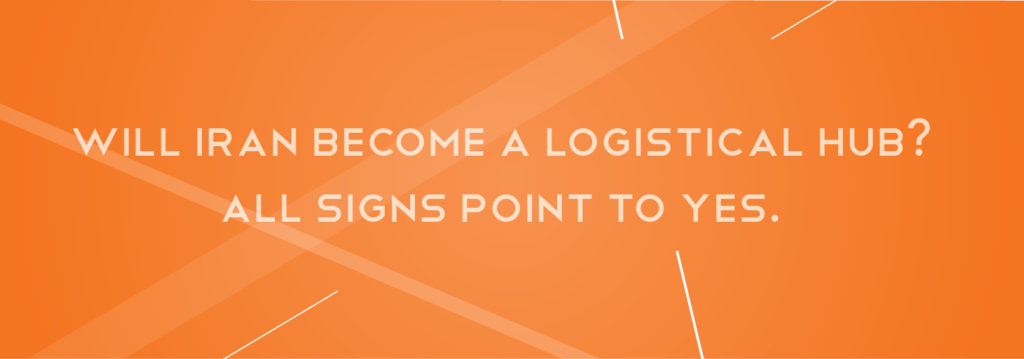Following the implementation of the Joint Comprehensive Plan of Action (JCPOA) nuclear agreement, there has been a progressive removal of key UN trade sanctions impending the economic growth of Iran and its accessibility to the region. The removal of these sanctions has positioned Iran as a country the world will have to (and want to) work with to optimize logistical trade routes and cut costs. Will Iran become a logistical hub? All signs point to yes.
Just look at its location related to the international supply chain industry:
- The Caspian Sea provides an avenue to ensure the development of Russia’s trade cooperation not only with the Near East, but also with Southern and Southeastern Asia.
- Opening Iran up to trade paves the road for the International North-South Transport Corridor (INSTC) and the China to Europe Silk Road, giving access to overseas shipping routes via the Pacific, Indian and Atlantic Ocean.
- Iran’s Gulf coast means South Asian trade partners, such as India, will be able to reach Moscow and Europe in half the time it used to take via the traditional Suez Canal route.
According to Delivered, Iran is the world’s 20th-largest economy with a GDP per capital of $17,400. Its stock market capitalization has reached $83 billion and its young, mainly urbanized population is one of the best educated in the region. It also has the fourth-largest oil and second-largest gas reserves in the world. These surprising statistics coupled with its strategic location makes cooperation with this country, now emerging from 10 years of trade sanctions, a very enticing (even necessary?) option.
The world seems to agree. Iran has laid groundwork for a regional airport hub in Tehran as a draw for global business. Plans are in the works for two new terminals and a large airport free-trade area that includes sections for industry, logistics, hotels and conference centers. While some major Western banks have been somewhat reluctant to finance projects within the country, three foreign banks (Oman’s Muscat SAOG, Woori Bank of South Korea and India’s UCO Bank Ltd.) are in the process of opening branches in Iran. Russia has gotten on board as well. They are currently developing an international multimodal cargo hub at Ulyanovsk, east of Moscow, to support increased trade with Iran.
In a move to incentivize logistical cooperation, Iran has set no limitations, restrictions or conditions for the return of shipping and liner companies to the country’s ports. According to the Iran Business Symposium, 17 major liner companies, such as Maersk Lines, have entered Iran without restriction and are unloading/loading cargo without issue.
Opportunities are looming for major investment in the supply chain infrastructure of Iran, but it’s hard to tell how fast and hard this trade expansion will happen. Some companies have remained cautious because different aspects of the sanctions have not been totally phased out. It’s also difficult to completely change your perception of a country whose cultural and ideological history has caused it to be “black listed” and welcome them into the economic fold with open arms. Regardless, the potential comeback of Iran could have far-reaching economic implications as companies around the world reconsider their logistical strategy and change with the times.

